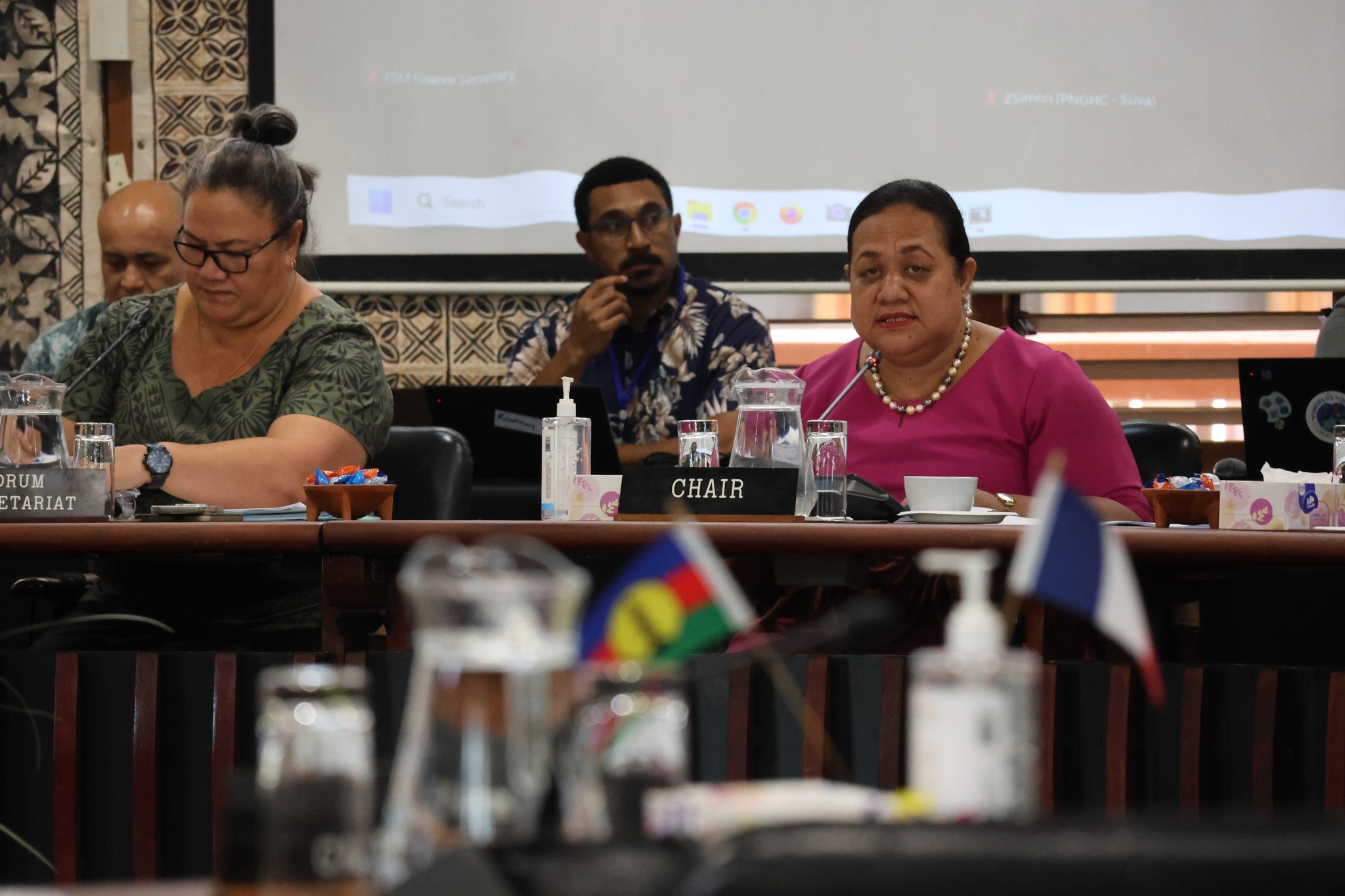“We gather here in Suva, at a pivotal juncture,” declared Tongan Kilisitina Tuaimei’api, the Chair of the 2024 Forum Economic Officials Meeting (FEOM).
Her words set the tone for a critical meeting focused on navigating the pressing economic and environmental challenges facing the Pacific region.
Tuaimei’api acknowledged the strong leadership of her predecessor, Garth Henderson, Financial Secretary of the Cook Islands.
“I am humbled and honoured to serve as the Chair of the 2024 Forum Economic Officials Meeting, FEOM. I acknowledge the leadership and guidance by Garth Henderson, who has provided a strong foundation for our work,” She said at the opening of FEOM Tuesday.
Addressing the formidable issues at hand, Tuaimei’api emphasised the urgency of collaboration.
“The 2050 Strategy for the Blue Pacific Continent serves as our guiding light,” she said. “However, significant challenges persist. The fragile global economic situation, coupled with the ongoing impacts of climate change and the war in Ukraine, threaten to derail our progress.”
The economic pressures are acute for the import-dependent Forum Island Countries.
“High prices of core commodities such as crude oil, rice, and flour have a damaging effect on our economies
“High rates of inflation put pressure on all aspects of the well-being of our families and communities.
“These factors contribute to posing significant challenges both to global growth, and to our own island economies,” she noted.
Highlighting the theme “Accelerating Transformative Resilience in the Pacific: Partnerships for Prosperity,” Tuaimei’api underscored the necessity of unity.
“By working together, sharing best practices, and forging strong partnerships, we can build economies that are not only robust but also adaptable in the face of adversity.”
Central to the discussions is the Pacific Roadmap for Economic Development (PRED).
Tuaimei’api described it as a “comprehensive policy document that could be transformative for our region.”
“It is imperative that we give this agenda item the attention it deserves, recognising it as a cornerstone for our collective economic future,” she stressed.
The Chair also addressed the importance of building economic defences and enhancing regional cooperation.
“The challenges posed by climate change and human mobility, for example, are formidable, yet they are not insurmountable. This is crucial because it addresses the very fabric of our societies and economies, ensuring that we can withstand and adapt to both current and future challenges.
“We will explore innovative approaches to tackle the challenges of accessing finance, including climate finance,” she said.
“Collaboration with development partners through initiatives such as the Pacific Resilience Facility (PRF) presents a promising avenue for mobilising resources and bolstering climate action.”
“This cooperation is not merely beneficial, but necessary. It offers a strategic framework for pooling our strengths and resources, amplifying our collective impact,” she said.
Tuaimei’api also called for decisive action and strategic guidance.
“It is crucial that we take timely actions and propose effective solutions to address the economic and related challenges faced by our economies,” she urged.
“Together, as one Blue Pacific Continent, we can overcome the challenges and ensure a prosperous future.”
The success of these initiatives, Tuaimei’api stated, will determine the region’s ability to navigate the complexities of economic development and climate resilience.
“Let us approach these discussions with the seriousness and dedication they warrant.
“Our combined voices have the potential to create a stronger impact on the global platform,” she said.














